The statue of Confucius designed by Chinese artist Zhang Huan © Nrf
“A journey of a thousand miles begins with a single step,” according to the popular Chinese saying. Too often, the original saying, “a journey of a thousand (Chinese) miles begins with a single step (or beneath one’s feet)” gets attributed to the great Chinese philosopher Confucius (more correctly written as Kǒng Fūzǐ), but that’s wrong. It was his supposed contemporary, Lao Tzu, who wrote it. Probably. Confucius was a scholar and, basically, a civil servant in what was a minor province, but he is often credited with the sayings of other people. The original version uses the Chinese measure of distance, the li, which is generally regarded as being roughly half a kilometre, so it’s not quite as great a distance as most people assume. In fact, a thousand li comes out as around 575 kilometres, although that’s still a long way if you’re on foot. As for Lao Tzu, he is generally considered to have been the founder of Taoism. That is, if he existed at all. There is some doubt over his historical existence. China provides an endless array of complications for anyone studying Chinese history, such as renaming things, then repurposing the original word to mean something else. Even today, there are many things about China that remain hard to understand. For instance, nobody seems to be sure of Xi Jinping’s intentions or what he would be willing to do to achieve them.

“2020 marks an important year for the People’s Liberation Army (PLA),” says the Annual Report to the US Congress on ‘Military and Security Developments Involving the People’s Republic of China’, as it “works to achieve important modernization milestones ahead of the Chinese Communist Party’s (CCP) broader goal to transform China into a “moderately prosperous society” by the CCP’s centenary in 2021.” A similar report in 2000 showed that China was concentrating on land warfare, with little regard for the latest military methods of waging war.
That has certainly changed, says the report. “Two decades later, the PLA’s objective is to become a ‘world-class’ military by the end of 2049—a goal first announced by General Secretary Xi Jinping in 2017. Although the CCP has not defined what a ‘world-class’ military means, within the context of the PRC’s national strategy it is likely that Beijing will seek to develop a military by mid-century that is equal to—or in some cases superior to—the U.S.”
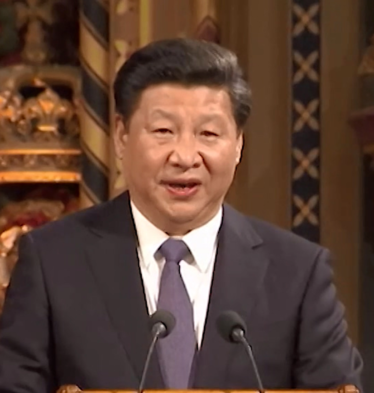
China seems determined to be not only a great power but also one that cannot be challenged. Unlike previous leaders, Xi seems to be trying to ensure that he and the state are “one and inseparable”, conflating himself with his country. In was in January 1830 that Daniel Webster of Massachusetts gave a speech to congress in defence of the union of the states, still at that time controversial and subject to heated debate, and culminating, three decades later, of course, in the American Civil War. Webster told his colleagues that he stood for: “Liberty and Union, now and forever, one and inseparable!” Xi seems to be saying “me and China, now and forever, one and inseparable”. But a country is bigger than one man, as even Joseph Stalin found out eventually. And, of course, Xi will grow old, as Chinese philosophers do; with no clear successor in sight, the limit on how many 5-year terms of office Xi can serve has been removed. It should be just two terms but China’s National People’s Congress (its parliament) has voted to allow Xi to stay in power for life, which means he’ll be very old when (if) he finally steps down. Incidentally, it was said that Chinese philosopher Lao Tzu was born with white hair, having spent 8 years (or 80, in some accounts) in his mother’s womb, poor woman. Her stretch marks must have been terrible. Meanwhile, the Chinese Communist Party (CCP) has the goal of transforming China into a “moderately prosperous society” by the time of the party’s centenary this year. Xi should not forget one of the sayings of Confucius: “In a country well governed, poverty is something to be ashamed of. In a country badly governed, wealth is something to be ashamed of.” Where China is placed in that context is a matter for future historians to ponder.
It certainly isn’t poor in military terms, as the latest Report to the Congress on China’s Military and Security developments states clearly.

In fact, China is already ahead of the US in some areas. It has more warships, for one thing, with some 350 surface vessels and submarines, compared with the US Navy’s 293. China has more than 1,250 ground-launched ballistic missiles (GLBMs) and ground-launch cruise missiles (GLCMs) with ranges of up to 5,500 kilometres, whereas the US has only one type of GLBM with a maximum range of 300 kilometres and no GLCMs at all, or at least none that it admits to having.
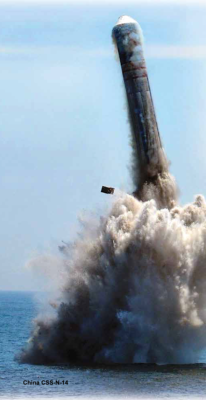
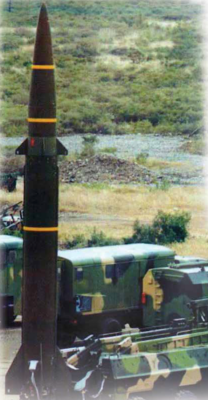
China can also boast one of the world’s largest forces of advanced long-range surface-to-air defence systems, including Russian-built S-400s and S-300s as well as some it has designed and built itself. Of course, the man with the sharpest sword is not necessarily going to win a duel. Skill in handling it is the key.
PANDAS, BEARS AND CAMELS
NATO, however, is well aware of the dangers of underestimating China. NATO leaders, meeting in Brussels, recently agreed that China poses major challenges. Afterwards, it issued a final communiqué that showed its members’ concerns. “China’s growing influence and international policies can present challenges that we need to address together as an Alliance,” it said. “We will engage China with a view to defending the security interests of the Alliance. We are increasingly confronted by cyber, hybrid, and other asymmetric threats, including disinformation campaigns, and by the malicious use of ever-more sophisticated emerging and disruptive technologies. Rapid advances in the space domain are affecting our security.” It’s worth mentioning here that China has made massive advances in space exploration and is currently looking at ways of getting astronauts to Mars and back safely with a view to having a long-term base on the Red Planet, according to an official of the Chinese space industry. He was speaking, interestingly, at the Global Space Exploration conference (GLEX) being held in St. Petersburg, in Russia. “Meanwhile,” says the communiqué, “the proliferation of weapons of mass destruction and the erosion of the arms control architecture also undermine our collective security.” Much of the communiqué concerns Russia and its many breaches of agreements, as well as its aggressive threats to the West, but China’s rapid military growth, coupled with its increasing cooperation with Russia is a serious issue.
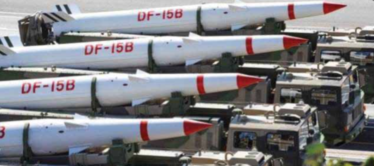
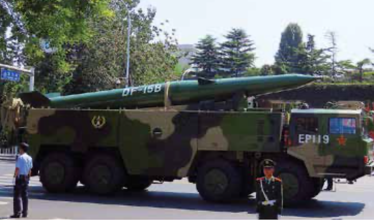
“China is rapidly expanding its nuclear arsenal with more warheads and a larger number of sophisticated delivery systems to establish a nuclear triad,” says the communiqué. “It is opaque in implementing its military modernisation and its publicly declared military-civil fusion strategy. It is also cooperating militarily with Russia, including through participation in Russian exercises in the Euro-Atlantic area.”
Sino-Russian cooperation is not something entirely new, of course. Part of the original Silk Road, essential to the economy of Han Dynasty China when it was first created in the 2nd century BCE, passed through southern Russia, where it seems certain that Chinese merchants must have sold some of their luxurious fabric to Russian buyers. The Chinese traders and other travellers, mainly travelling in camel trains, brought more than just silk, of course. They also helped to spread religions, such as Buddhism, Chinese philosophy, art, architecture, mathematics, and, later, they sold paper and gunpowder, too.
You may (or may not) be interested to know that among the many things China invented and sold to the world was toilet paper, at a time when most people were using fallen leaves and clumps of grass. The invention is often credited to Joseph C. Gayetty of New York in the 1850s, although it didn’t catch on immediately. But Gayetty was not the first by several centuries; the Chinese had first hit on the idea in the 2nd century AD and later, in the 14th century, the otherwise cruel Ming emperor Hongwu ordered soft, perfumed toilet paper for the imperial household. He may have created China’s most efficient secret police force, known as the Embroidered Uniform Guard, and invented some especially cruel and ghastly methods of execution for the tens of thousands of his critics and general opponents that he had killed, but at least he wanted his nearest and dearest to be comfortable. But I digress: the fact is that trade and cooperation between China and Russia go back more than two millennia, possibly much longer. The Russians may not have bought Hongwu’s perfumed toilet paper, however.

The Silk Road, of course, wasn’t one road but a series of routes by land and sea linking China with the West, just like its modern day equivalent, the Belt and Road Initiative (BRI). One of those routes passed through the Great Steppes, crossing Hungary and parts of Siberia, by Lake Baikal and the Urals. The routes had any number of little by-ways to explore if the merchants fancied looking at the scenery. So, they would have been familiar with southern Russia and the Russians would presumably have helped to keep the routes open and relatively free of bandits. The United Nations World Tourism Organisation (UNWTO) can give you detailed instructions to following the route as a leisure pursuit – all 12,000 kilometres of it – if you should feel inclined and once the Pandemic-inspired travel restrictions are lifted and your feet can stand it.
You might want to learn some useful phrases before you go, but that won’t be easy. There are a number of dialects that are very different from one another. Even Mao Zedong only spoke Mandarin Chinese as his second language and with a heavy accent. His natural tongue was Xiāng, the dialect of Sháoshān, a town in Mao’s native Hunan province, not far from Changsha, the province’s capital. Xiāng is closely related to Mandarin, but when the Anglo-French writer and journalist Robert Payne interviewed Mao in Communist China’s ramshackle ‘foreign ministry’ at Yenan, he needed a US Army major to serve as interpreter. The interview was conducted after a dinner comprising boiled meat, lettuce and maize, and during that meal Mao had been telling his guests about the Long March, spending much of the time praising the bravery of Chu The, a general and gifted military strategist for the Red Army who sometimes led the March.
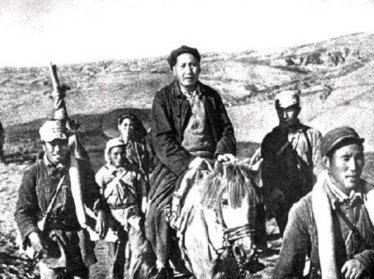
Mao credited him with amazing acts of bravery, while he himself was ill. “We seemed to be climbing up vertical sheets of ice,” he told his guests, “and I have no idea how I survived.” Mao, however, was a polite and attentive host, according to Payne, occasionally standing up and using his own chopsticks to place some special delicacy in one of his guests’ bowls. However, despite the language difficulties, you should find it easy enough to say “Nǐhǎo” (hello) to someone and to perform the traditional hand-cupping gǒng shǒu manoeuvre, simultaneously giving a slight bow. Shaking hands and cheek-kissing are Western traditions; physical contact is not generally practised there.
BACK TO THE FUTURE?
Clearly Xi Jinping is not trying to recreate the 6th century Tang dynasty, famous for its art and accomplishments (and also for China’s only female ruler, the Empress Wu). What he seems to be seeking, initially, is a place for China in global politics equal in stature to that of the United States.
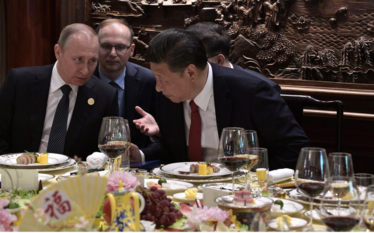
Xi may cosy-up to Vladimir Putin when it suits him – after all, Putin has some very impressive weaponry pointed westwards – but China seems to view Russia as a rival, too, and Xi expressed concern that President Biden went to meet Putin before him. We shouldn’t forget, either, that 2021 marks the 20th anniversary of the China-Russia Treaty of Good Neighbourliness and Friendly Cooperation being signed by Jiang Zemin and Vladimir Putin. Xi seems to have a higher opinion of American weapons than Mao did, although in his case, his views may have been based on Hollywood movies, which he loved, and in which artillery pieces regularly blew up and warplanes crashed. Now Xi wants real weapons that are every bit as powerful as those controlled by Washington, and he seems to have acquired them, indeed outstripping the US total in some areas. Furthermore, on 19th May this year, Xi and Putin witnessed by video link the ground-breaking ceremony of work beginning on a nuclear energy cooperation project, the Tianwan Nuclear Power Plant and Xudapu Nuclear Power Plant.
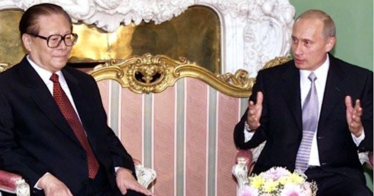
Biden’s officials have met with their Chinese opposite numbers in Alaska, but witnesses say it didn’t go well. Both sides issued statements criticising the other. Some American officials also doubted the bona fides of the Chinese diplomats participating, on the grounds that they were certainly not part of Xi’s inner circle. Add to that the concern over SARS-CoV-2 and Beijing’s refusal to permit an investigation into where the pandemic started, and things are not looking too hopeful for improved relations between the world’s two largest economies. Control of Weapons of Mass Destruction were supposed to be covered by the Intermediate-Range Nuclear Forces (INF) Treaty, signed by Ronald Reagan and Mikhail Gorbachev in 1987.
It ran out in 2019 and President Trump refused to renew it, having already demanded a new nuclear pact that included not only Russia but also China, which had not been party to the INF Treaty. It seemed like a sound plan.
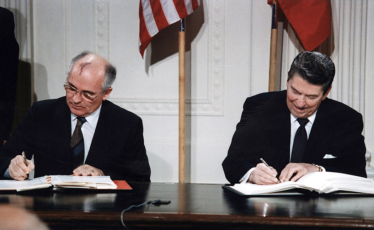
President Trump had been pushing in any case for a new treaty involving China. The New START (Strategic Arms Reductions) Treaty was a further development of an existing treaty that had been in force since 2011. The idea was to limit the risk of nuclear conflict through a series of arms control agreements that would limit how many strategic nuclear weapons any signatory party could wield, although in its existing form it only covered the US and Russia. The New START Treaty not only limited the numbers of warheads but also their delivery systems, such as intercontinental ballistic missiles. It was the only remaining treaty to control nuclear weapons and the new US President, Joe Biden, got a last-minute agreement with Russia to extend it to 2026, just before its expiry date. The idea was to buy time while more details were gone intro and a new treaty agreed. But again, it didn’t include China. The European Parliament’s Think Tank welcomed the last-ditch deal but pointed out that “There are still many unanswered questions about the kind of weapons that a future treaty could include.” As reported by Al Jazeera, “Robert Wood, US ambassador to the United Nations in Geneva who also serves as US Commissioner for the New START Treaty’s Bilateral Consultative Commission, speaking at a UN-sponsored Conference on Disarmament called for a new arms control drive that ‘covers more weapons, and eventually more countries’.” At the moment, we are left with an asymmetric agreement, since one of the three main powers is not included. It’s a point highlighted by Wood later in his address. “The United States will also seek to engage China on nuclear arms control and risk reduction. I hope that China will join us in that effort.” Russia’s Ambassador, Gennady Gatilov, also praised the new deal, and as a former Russian Foreign Minister he clearly has some experience. China was also represented at the meeting but anyone hoping for a tri-partite Treaty may be disappointed by his words.
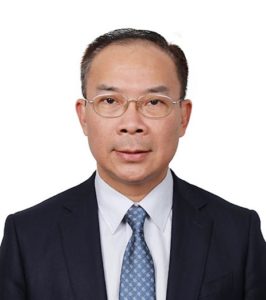
Li Song, China’s ambassador to the event, welcomed the Treaty extension but pointed out that the US and Russia are the largest nuclear powers in the world. “China hopes to work on a basis of parity and mutual respect with all nuclear powers,” he told the meeting, “including the Russian Federation and the United States, to engage in bilateral dialogue on security, strengthening mutual security measures, boosting transparency and trust.” Notice he said “bilateral” and not “trilateral”. He clearly believes that China has some catching up to do before further expansion becomes more restrictive.
HOLD THE FRONT PAGE! AND THE EDITOR!
Just at the moment, China seems to be in the process of ‘battening down the hatches’ at home. In other words, seeking to ensure domestic security in case of a breakdown in friendly relations with other powers. Xi has started close to home, by enforcing China’s will in Hong Kong and Taiwan, arresting any who question what it’s doing. In the case of Hong Kong and Macau, the old agreement to have “one country, two systems” seems to have been forgotten. When Hong Kong reverted to being a part of China, there was agreement that the citizens of Hong Kong would retain their right to elect their own representatives to the Hong Kong parliament. However, the Chinese government later told them they were free to vote only for candidates selected and approved by Beijing, which is a rather different matter.
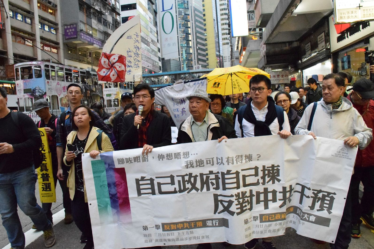
There were protests and demonstrations, which gave China an excuse to clamp down hard. Protestors were arrested, followed by opposition politicians and journalists who dared to criticise China’s cheating. Newpapers, such as the pro-democracy Apple Daily, have been shut down, their offices raided and, in the case of the Apple Daily, its editor , Ryan Law, arrested. The paper’s owner, Jimmy Lai, was jailed last year. Basically, Xi Jinping is saying “you have one man, one vote. And I am the one man.” In fact, it has become one country, one system, which is not what the then British Prime Minister Margaret Thatcher thought she had negotiated.
It seems strange that China seems to be going backwards when throughout many centuries of history it has led the way into the future. China was the first to create standardised units of money, minting coins as early as 1,000 BC.

The idea caught on fast. By the 13th century AD, some Chinese merchants started to deposit their surplus coins (which were heavy to carry) with other merchants in return for receipts that were signed and stamped with a promise that the piece of paper concerned was the equivalent of a set number of gold coins and they could be redeemed at will. By 1274, the Chinese state was printing its own promissory notes, thus creating the first paper currency. It seems as if the world is now moving forward towards increasing use of Bitcoin and its cousins. It’s a kind of Internet currency, or “crypto-currency”, based on a ‘blockchain’, an unfalsifiable ledger of each transaction. It is immune to fraud and so seems promising as a possible replacement for ordinary cash, although it eats up computing power and also electrical power. You may not be surprised to learn that, according to testimony by Facebook CEO Mark Zuckerberg before the US House of Representatives Financial Services Committee, China has developed one of the most advanced digital payment systems in the world. Meanwhile, China has been clamping down on crypto currencies based elsewhere. It has placed restrictions on what’s called ‘Bitcoin mining’, which had a very adverse effect on the value of Bitcoin and others like it.. China, of course, doesn’t want competition for its own venture, the “Digital Currency/Electronic Payment” (DC/EP), or the digital yuan.
Fans of the new electronic payments system say that the Chinese version is the very antithesis of Bitcoin. While Bitcoin stresses its freedom and independence from central control, the digital yuan is all about control, although that doesn’t seem to have put off its supporters. Li Bo, Deputy Governor of the People’s Bank of China, has even suggested that the digital yuan could be used by athletes attending the 2022 Winter Olympics in Beijing. If they go ahead. There are protest movements demanding the event should be relocated because of China’s treatment of the Uighurs. Still, persuading everyone of any age to switch to a virtual currency may not be easy, despite claims by traders towing the Beijing line. One trader told ABC news that “Electronic payments are particularly ubiquitous in China; nowadays, older folk don’t even use cash to buy fruit and vegetables at the market.” Interesting, if true. I’ve certainly seen no evidence of it in the UK. It’s been suggested that use of the digital currency could spread to Macau, because it would help in the fight against money laundering. It would also help Beijing to fight back against the ubiquity of the US dollar, which accounts for some 90% of all transactions in foreign exchange. China has the world’s second largest economy; unshackling it from dollar transactions could turn the yuan into the international reserve currency. What a powerful weapon that would be in the ongoing superpower war of powers!

There is no substitute, however, for real, tangible weapons. China is building up its arsenal at an alarming pace; at least, alarming to Washington. Earlier this year, Admiral John C. Aquilino, now serving as the commander of the United States Indo-Pacific Command, urged members of a Senate Armed Services Committee to strengthen US forces “and other elements of power” in the face of an unprecedented military build-up of new weapons and new military capabilities by China. Admiral Aquilino said that the aim appears to be to block US access from Asia to Beijing and to make use of any vulnerabilities discovered in order to gain economic, diplomatic and military advantage, while falling just short of provoking conflict. He urged the members to ensure that US military capabilities keep pace with China, so that the US would be able to “deter and, if needed, defeat China in a war”. Those are tough words. He said the Pentagon should – and this was his greatest priority – invest in better air and missile defences. China has been building and deploying increasingly advanced ballistic, cruise and the new hypersonic missiles, which deliver their payloads at such astonishing speeds that it is impossible to stop them with existing missile defence systems. At present, no anti-missile missile system exists that is capable of stopping one of the new hypersonic missiles on its way to a target at five times the speed of sound. Even if radar detected its approach, it’s not clear how the weapons flight could be deflected.
ARMED AND READY? NO
Aquilino said that the most urgent need concerns the risk to Taiwan, which Beijing still regards as part of China, just as Russia considered Crimea to be part of its territory and took it back by force.

China could do the same and, Aquilino said, already has an array of very advanced weapons pointing at the island. Hong Kong and Macau are closer and would be even more difficult to defend. In was in June 2020 that Chia imposed its draconian new National Security Law (NSL) on Hong Kong, effectively erasing basic civil and political rights there. It has been claimed that the NSL is part of Beijing’s efforts to change Hong Kong’s institutions and society from a mostly free city into one under the severe rule of the Chinese Communist Party, even if it’s a form of Communism that Karl Marx and Vladimir Ilyich Lenin would scarcely recognise. Hong Kong, of course, was seized in 1841 in a most dishonourable way by Britain during the First Opium War, in an attempt to protect the rights of mainly British traders to sell the drug illegally in China. Addiction was taking a heavy social toll there and the Qing dynasty was determined to put an end to it. The Chinese authorities seized and burned 1,400 tons of opium. That was not acceptable to London, which was very devoted to the profitability of British companies. Tensions were then worsened when drunken British sailors murdered a Chinese villager and Britain refused to hand over the culprits for trial. In other words, it’s very easy to understand why China considers Hong Kong to be its own and why its attitude towards the West is somewhat jaundiced. The whole affair should, perhaps, never have been allowed to drag on until 1997, when Britain officially handed Hong Kong over to Chinese rule.

Now, China seems to be making up for those years of having a capitalist state on its Communist doorstep, with the NSL empowering its forces to act like Emperor Hongwu’s Embroidered Uniform Guard. China is, of course, a huge country with a population of very nearly 1.4-billion people. Governing such a vast number of people requires strength and toughness, and that’s what the Chinese Communist Party (CCP) is now delivering. Mao always suspected he would end up facing American forces because they continued to send matériel to the Kuomintang to use in their fight with the Japanese, which was turned instead against the Red Army. As Robert Payne wrote about his meeting and interview, Mao remained resolute: “It doesn’t matter how many tanks and airplanes they send against us. We are not afraid of them,” he said. Payne asked him what his Red Army soldiers would do when confronted with heavy tanks supplied by the Americans. “We’ll tear them apart with out bare hands,” he said. He then threw out his hands and feet like a Chinese boxer. Many years later, Payne told me that it was this claim that had impressed him most. It was the point at which he realised that Mao and his Red Army were undefeatable. “For many months,” wrote Payne in his book, Eyewitness, “I had been convinced that the Red Army would conquer the Generalissimo’s (Chiang Kai-shek’s) armies and at that moment I knew for a certainty that their victory was inevitable.” And so it proved.
But of course, Xi Jinping is not Mao, nor does he have General Chu The to help him and guide him. He comes across as a very different leader from the often shy and reticent Mao, but then he’s not trying to win back a country from warlords and an extremely right-wing armed group. And China, of course, is a much more modern country, where even elderly villagers in remote areas, it’s claimed, can use crypto-currencies to buy radishes. I know I couldn’t. Then there’s the poetry. Mao hated his poems, he said. They were not good enough. This is one he wrote about The Long March in 1935:
The Red Army fears not the trials of the March,
Holding light ten thousand crags and torrents.
The Five Ridges wind like gentle ripples
And the majestic Wumeng roll by, globules of clay.
Warm the steep cliffs lapped by the waters of Golden Sand,
Cold the iron chains spanning the Tatu River.
Minshan’s thousand li of snow joyously crossed,
The three Armies march on, each face glowing.
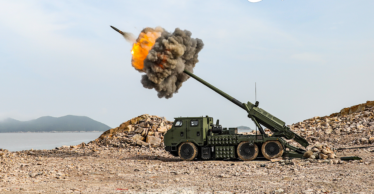
You may have read recently about a small herd of around 16 or 17 elephants, including 3 males, that seem to have started their own “Long March” across China. Much to the surprise of scientists, they have already (at the time of writing) completed some 500 kilometres across China and they haven’t finished yet. That means they will have already completed a journey of very nearly a thousand Chinese miles, and it must have begun with a single step by one elephant or another. They began the massive trip in the Xishuangbanna National Nature Reserve, not far from the borders of Myanmar and Laos, and they have been travelling north, appearing in various towns and villages along the way. They have not been entirely benevolent, smashing down doors, raiding shops to steal food, bathing in canals and eating crops. They have even entered houses and used their trunks to turn on taps when they need a drink. Like the Red Army of many years ago, the herd “fears not the trials of the March”. Mao would be proud of them; at the time of writing, Xi has not passed comment. And despite their proven courage and stamina, it would seem that the United States need have no fears about the elephants’ territorial ambitions. For one thing, they travel much more slowly than a hypersonic missile.
However, we should bear in mind that China is reported to be constructing more than a hundred new missile silos in the country’s western desert region. In fact, Fox News reports that the total number could be as high as 145. Criticism from the US over this expansion has met with little more than a shrug from Beijing, with Wang Wenbin, a spokesperson for China’s Foreign Affairs Ministry, reminding a press conference that China is still a long way behind in the nuclear arsenal stakes.
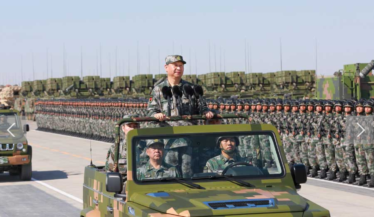
“There is an order of magnitude difference between the amount of China’s nuclear weaponry with that of the United States and Russia,” he told reporters. Even so, this rapid build-up by China is making US military experts nervous. “I cannot deter with the leftovers from the Cold War forever in the future”, Admiral Charles Richard, Commander of US Strategic Command warned members of the Senate Armed Services Committee, appealing for an urgent upgrade. Other US experts fear China’s plan (perhaps not surprisingly) is to maintain a deterrent that can survive a first strike and yet still be able to penetrate US missile defences. It’s a scary thought; scary enough, perhaps, to set a herd of elephants off on a very long (dare I say ‘mammoth’?) journey to prove an old proverb. They, after all, are not “leftovers from the Cold War”, so much as leftovers from the Punic Wars between Rome and Carthage, which eventually led to Rome’s emergence as the superpower of the Mediterranean. Interestingly, theLatinLibrary.com points out that “The enmity of Carthage impelled Rome to build up its large army and to create a strong navy.” Yes, superpower manoeuvrings persuaded other powers to change their military strategies in response, even then. Still, elephants did alright for Hannibal, even if he lost in the end. They certainly gave the Romans a fright, anyway.

